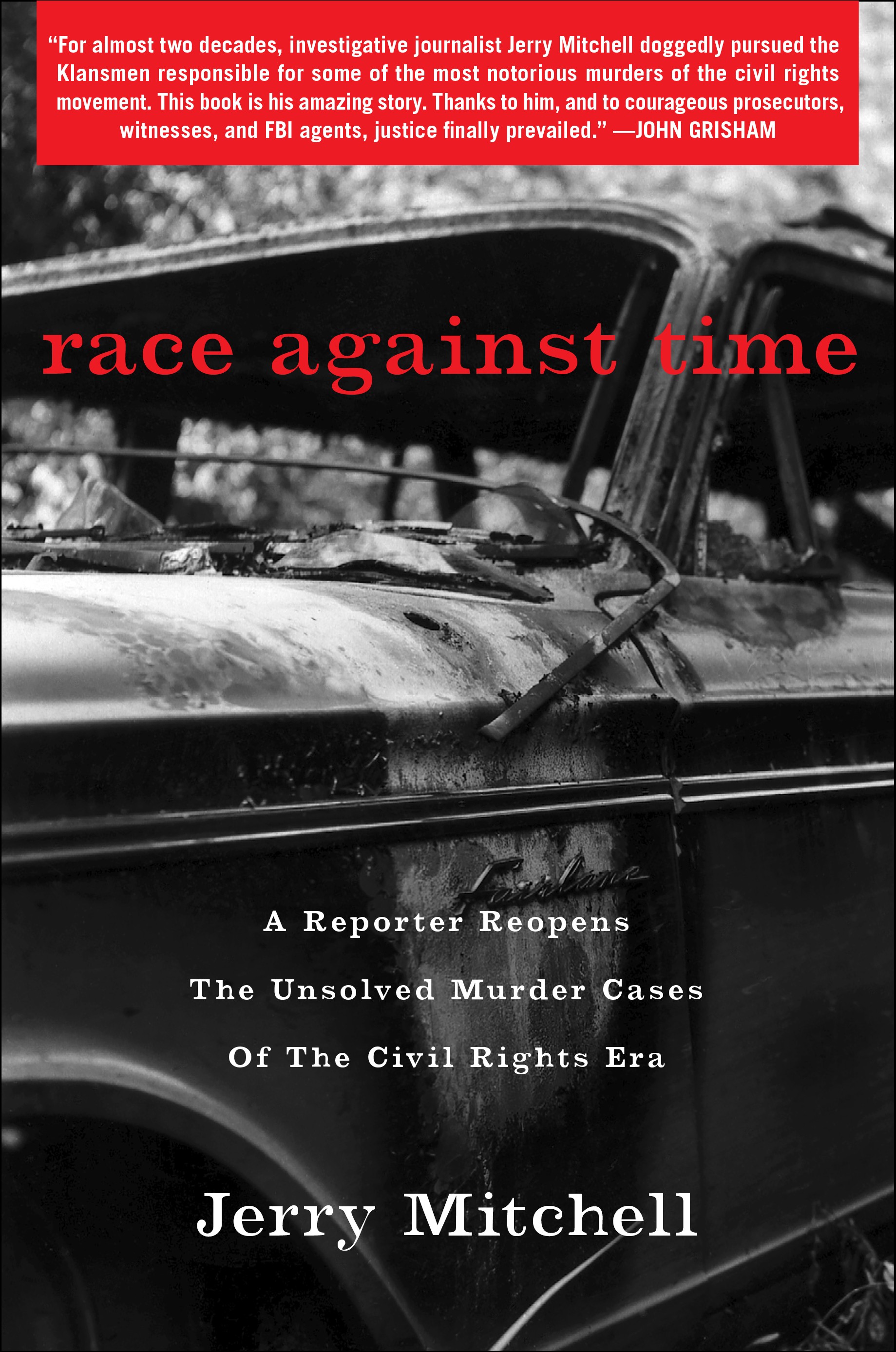 James Patterson
James Patterson
Jerry Mitchell
This Wednesday, February 12th, MacArthur Foundation “Genius Grant” recipient, investigative journalist, and author Jerry Mitchell will discuss and sign his recently released book Race Against Time: A Reporter Reopens the Unsolved Murder Cases of the Civil Rights Era (Simon & Schuster) at Novel bookstore.
The book was more than 30 years in the making. Mitchell’s interest in — and outrage at — a series of murders of civil rights activists by members of the Ku Klux Klan were stoked when he was sent on assignment to write up the 1988 film, Alan Parker’s Mississippi Burning. So, in more ways than one, Mitchell’s efforts to bring the Klan killers to justice was a race against time.
“It was a race against time, in time being of the essence,” he says. “In case after case, there are all these deadlines.” So this book, a work of investigative reporting meets memoir that reads like a page-turner of a legal thriller, is also a race toward justice.
“The purpose for which, unfortunately, these people were killed is the color of their skin,” Mitchell says. “Many people had their lives stolen.” Race Against Time chronicles Mitchell’s work to help make sure the killers paid for their crimes.
“You’re always going to have people who question your motives in any level of reporting,” Mitchell says. “I even had people who would say, ‘Why don’t you leave these old men alone,’ and I would try to explain to them, ‘Look, these were young people when the crimes were committed. These were young killers who just happened to get old, and justice had never come.’”
So this work was not without its hurdles. “This wasn’t politically popular. It wasn’t like you’d take on a case and the voters would overwhelmingly throng to the polls to support you on this,” Mitchell adds. “I even had an editor who didn’t want me to take on these stories.”

But take on the stories Mitchell did, and his efforts were, by and large, successful. “All these guys I wrote about died in prison,” the reporter says evenly. Still, Mitchell doesn’t dwell on the perpetrators of the heinous crimes — rather he talks more of the bravery and resilience of their victims’ families and of the authorities who worked to bring the murderers to justice. “To me, it’s the story of these courageous families who never gave up.” Mitchell wanted to make sure that the victims’ families received “some semblance of justice before it was too late.”
Even years after the murders took place, though, reporting on the crimes was dangerous, as was advocating for justice. “The Klan was a very powerful organization,” Mitchell says. And about the murderers themselves, he adds, “They may not be as strong as they were before, but they could still pull a trigger. Just because they’re old doesn’t mean they can’t shoot.”
In the end, though, and in this instance at least, justice won out. Of course, Mitchell, whose nonprofit, the Mississippi Center for Investigative Reporting has been looking into unjust outcomes in Delta prisons, is not one to throw himself a victory party, reminding the reader that there is no shortage of social ills to combat. “Justice is about more than what happens in the courtroom,” Mitchell says. “It’s about how we treat each other.”
Jerry Mitchell discusses and signs copies of his new book, Race Against Time: A Reporter Reopens the Unsolved Murder Cases of the Civil Rights Era, at Novel bookstore, Wednesday, February 12th, at 6 p.m.